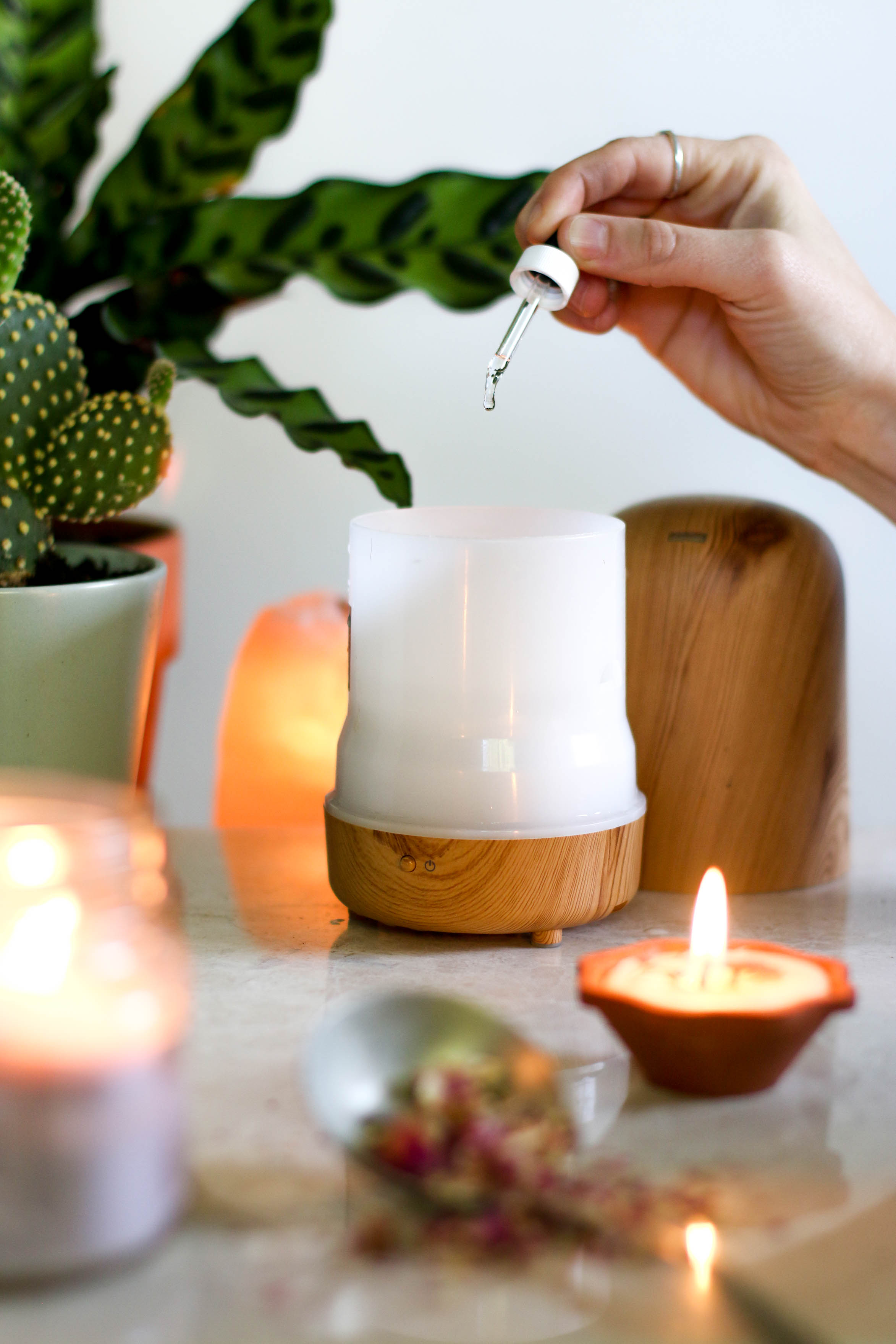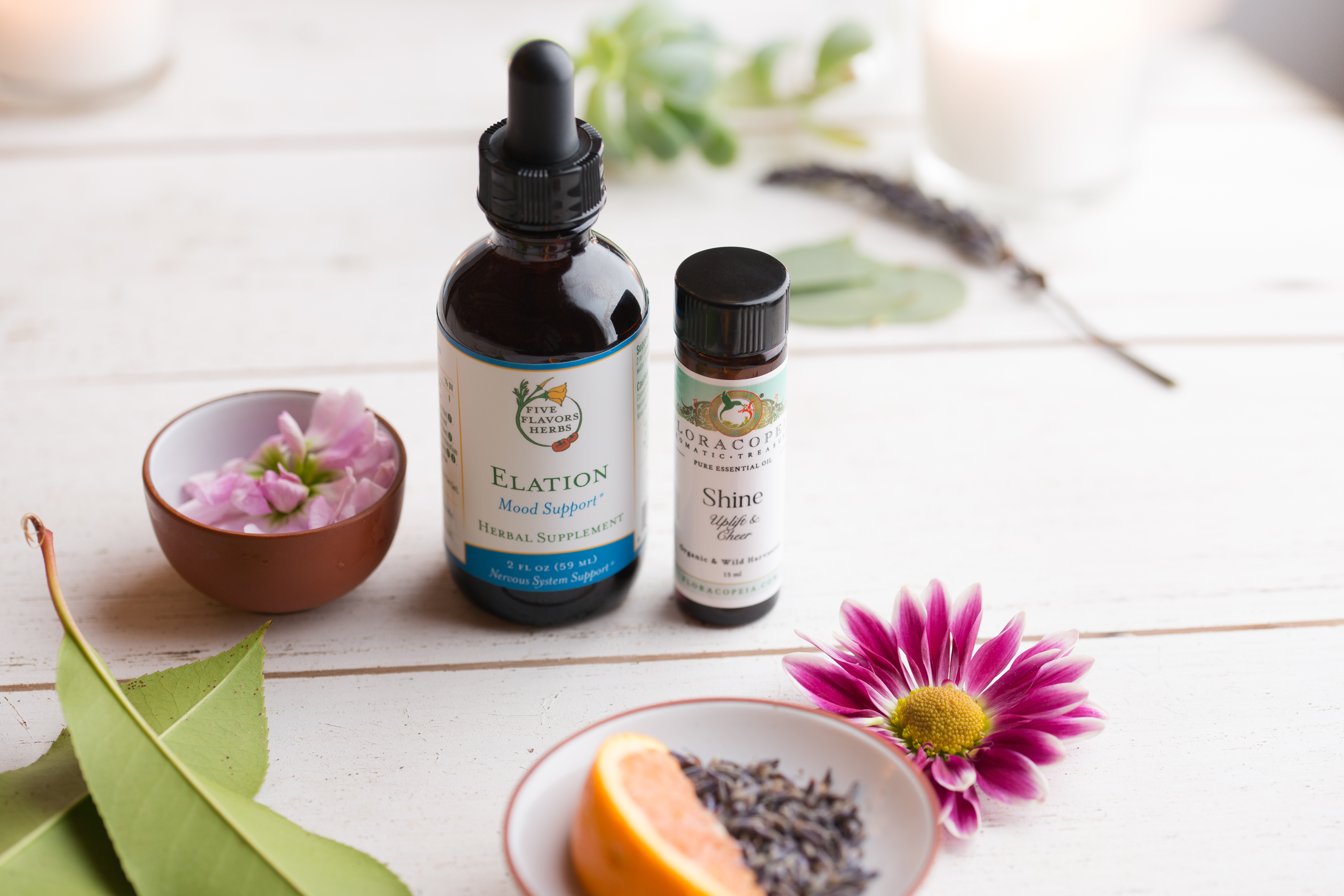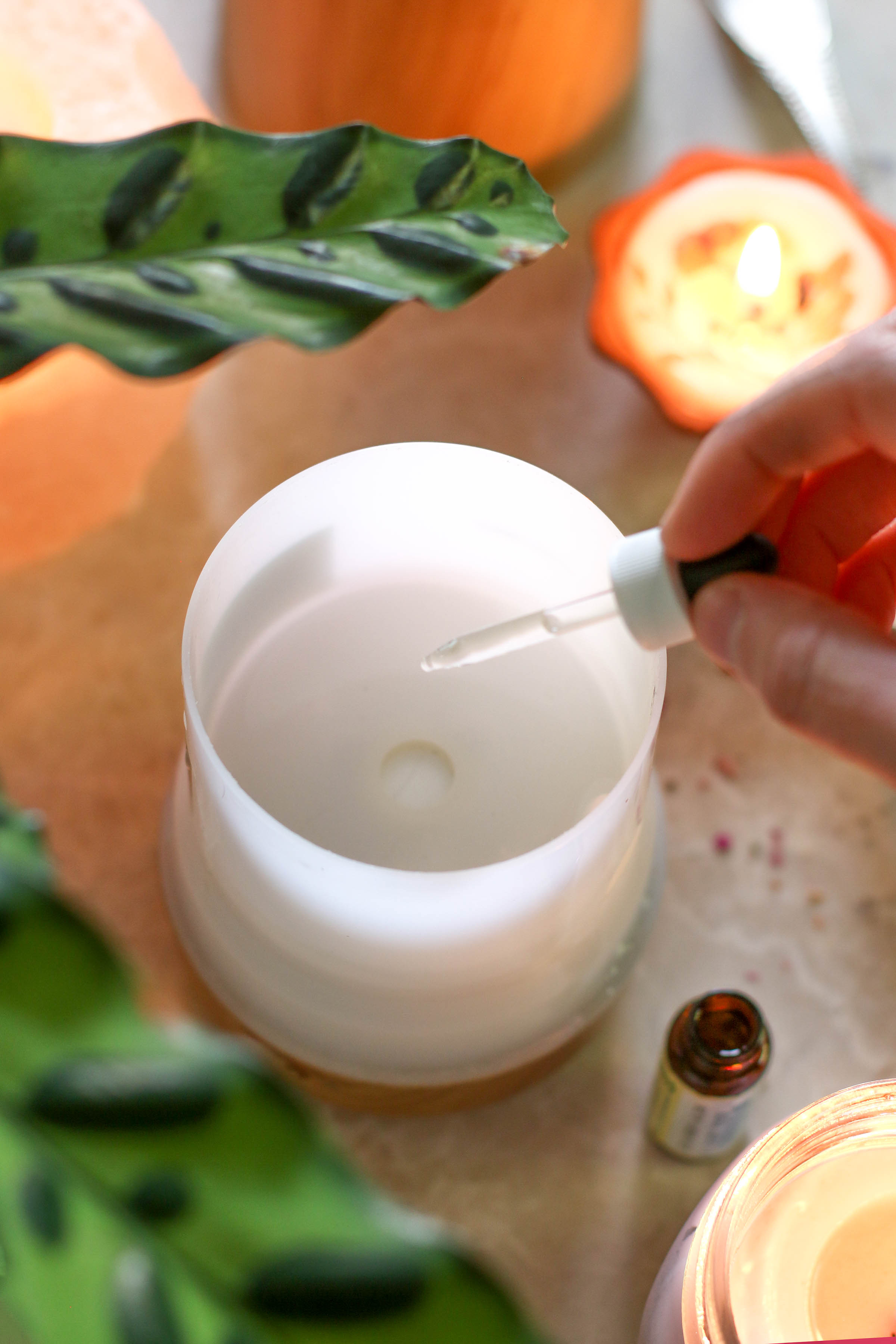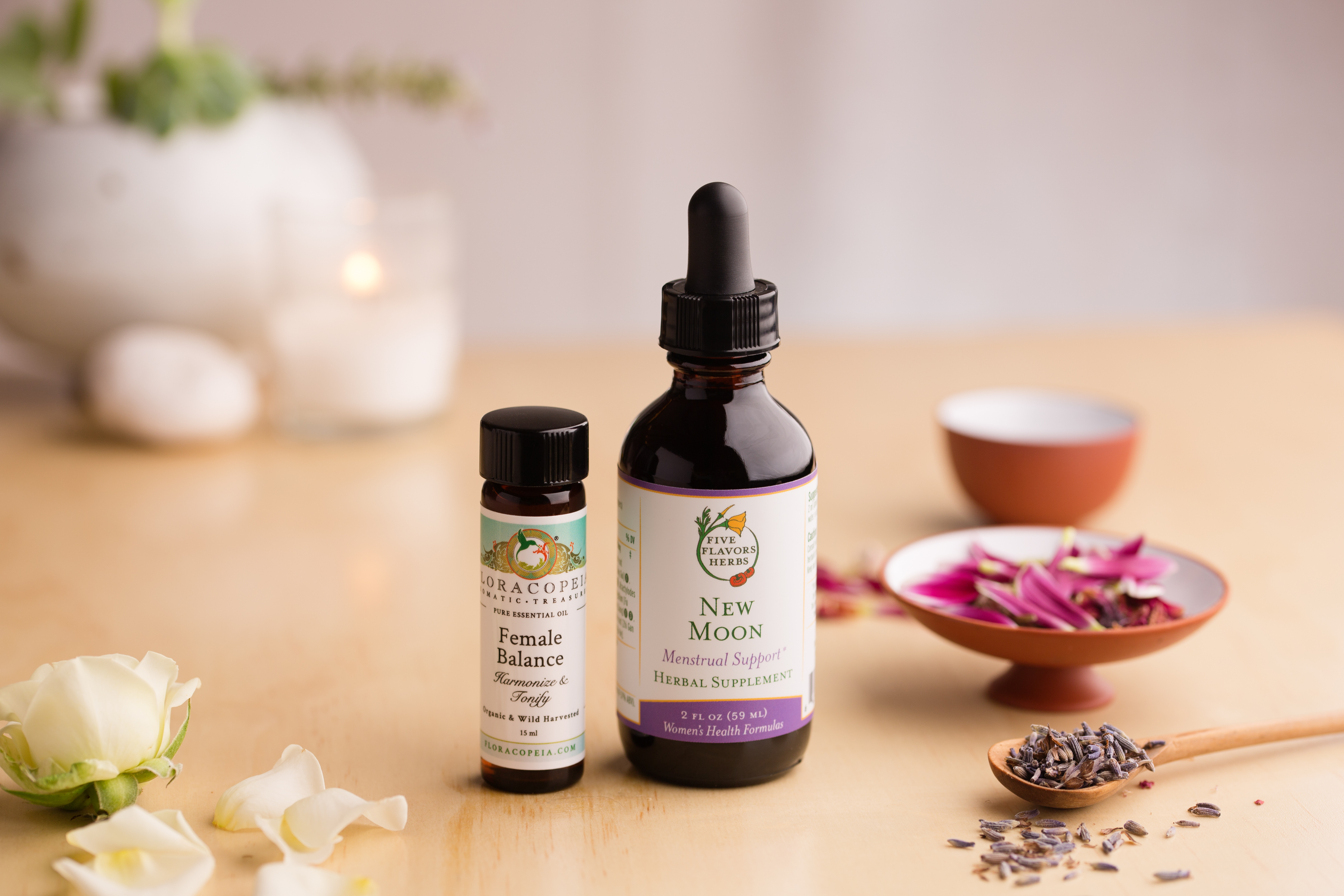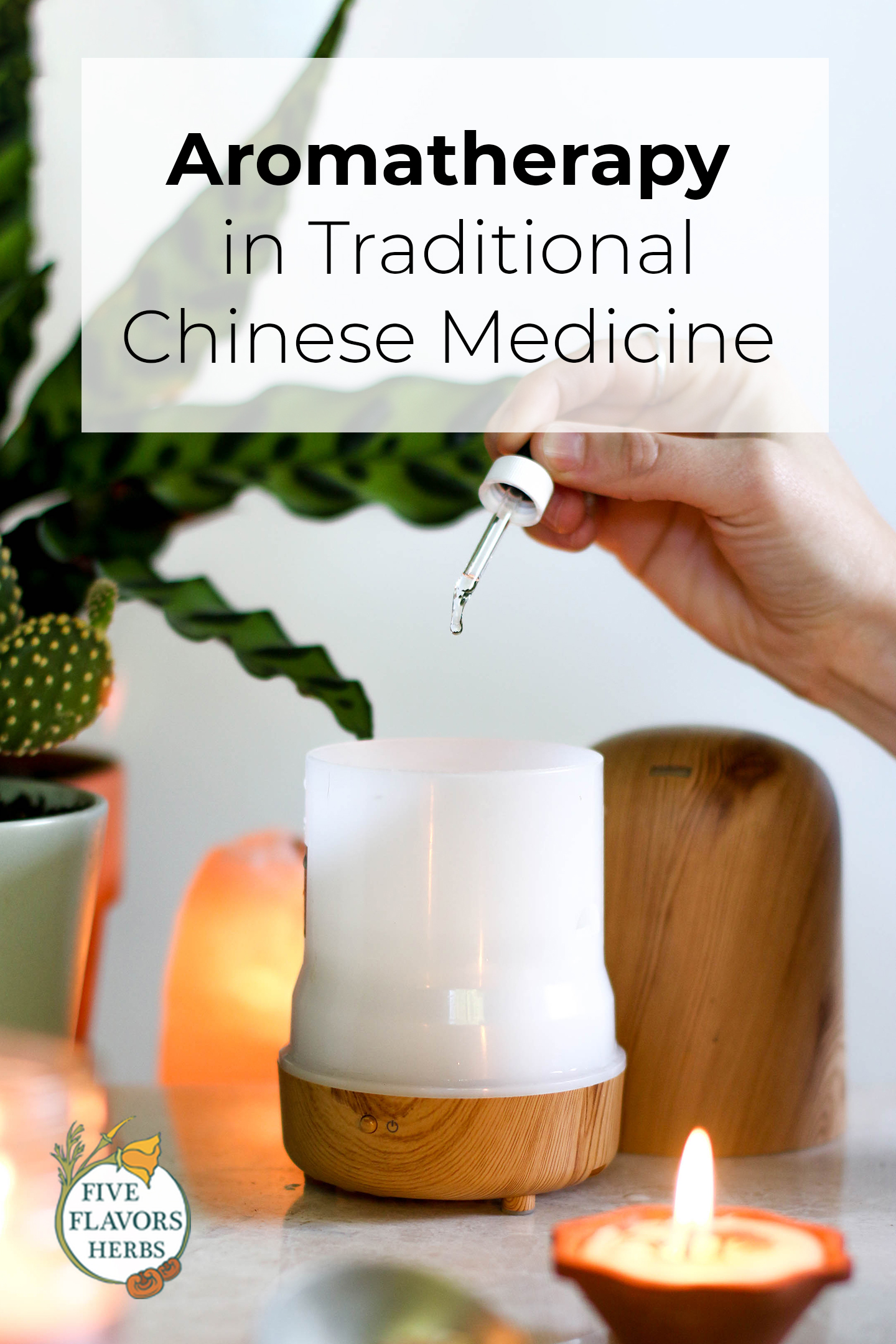Essential oils hold a well-established place in Western holistic therapeutic traditions, but their applications in Traditional Chinese Medicine are less widely understood.
As a licensed acupuncturist and TCM practitioner, I frequently incorporate essential oils into my treatment protocols (often alongside complementary herbal extracts). To ensure the safety and potency of the plant essences I use with my patients, I turn to reliable sources like Floracopeia Aromatic Treasures, a trusted line of pure essential oils created by one of the world's foremost experts in aromatherapy, David Crow L.Ac.. I had the opportunity to sit down for an engaging chat with David to discuss the applications of essential oils from a TCM perspective.
Interview with David Crow, L.Ac., Founder of Floracopeia
Ben Zappin (Five Flavors Herbs): David, I’d like to hear your perspectives on the use of essential oils (a.k.a. "EOs") in TCM. While EOs as we know them are not part of traditional Eastern materia medica, plant aromatics play a key part in herbal therapeutics. Would you share your insights on their role in supporting immune health?
David Crow (Floracopeia): Essential oils and aromatic herbs have an important relationship with what TCM calls wei qi, or “defense qi.” Because of their germ-fighting and immuno-supportive powers, and because they are so effective when used for atmospheric purification when diffused, essential oils are one of the primary media for strengthening wei qi and treating what is described as “invasion of wind affecting the surface of the body,” specifically, threats to the respiratory system.
Aromatic herbs, when used internally, are a key treatment for supporting the qi and yang of the Spleen; clearing dampness and stagnation from the digestive system; and strengthening the respiratory system through their qi circulating, decongestant, and expectorant actions. That is why the majority of aromatic herbs used in TCM are used for either releasing the exterior and dispersing exterior wind conditions (of the respiratory system), or warming and dispersing dampness and stagnation in the digestive system. The active principles of these species are the volatile aromatic oils.
Ben: This brings to mind the applications of many herbs from the Apiaceae family in TCM and Western herbal medicine, particularly Angelica species like Chinese bai zhi or our native Angelica archangelica. It also reminds me of applications of evergreen essential oils like pine tip and fir which, while less common in TCM, are used to support respiratory and immune function in ways similar to more traditional East Asian botanicals.
I would love to hear your perspectives on plants from the Lamiaceae [mint] family for mood, emotion, and cognition. I think this is an area where there is a strong intersection between Western research about EOs for nervous system function and traditional Eastern and Western herbs that regulate the qi and move the Blood.
David: Aromatherapy using essential oils is a primary treatment for many kinds of shen disturbances in TCM. There are many fascinating reasons for this, which stem from the relationship between the sense of smell and the limbic, endocrine, and neurological systems. Specifically, aroma has a strong and direct influence on the centers of the brain related to emotion, memory, and circadian rhythms, meaning that the smells we perceive have a direct link to the neurochemistry underlying shen disturbances.
The term shen is a somewhat intangible concept compared to modern diagnostic criteria. I was taught that it has to do with the light in the eyes, which is a rather difficult quality to evaluate objectively! It’s also related to a person’s overall emotional affect, whether they had a positive or negative attitude and demeanor and is sometimes translated as “Spirit.” I learned that someone with a positive and bright shen had a stronger immune system than someone whose shen was dull, so I’ve come to understand it as a kind of psycho-neuro-immunology.
In TCM, the range of shen disturbances goes from mild expressions such as sleeplessness, restlessness, irritability, and nervousness, to severe expressions that manifest as serious mental illness. Historically and in modern research, plant aromatics can have significant effects on the mind, emotions, sleep, and other factors related to shen. I would categorize these into four major groups:
- Relaxing Oils: Lavender, clary sage, palmarosa, geranium, rose, and most other floral oils have the power to bolster the shen and rejuvenate vitality through improved sleep and rest. In Western herbalism, these plants would be categorized as relaxant nervines and mood-elevating nervine tonics.
- Cathartic Oils: Valerian, jatamansi, and dream-inducing herbs like clary sage work directly on shen by releasing repressed emotions and traumatic memories stored in the subconscious by the limbic system.
- Inspiring Oils: Essences of agarwood, tulsi, sandalwood, frankincense, palo santo, rose, lotus, and most exotic florals reignite the shen by evoking spiritual moods that uplift the mind and heart.
- Nootropic Oils: Clarifying herbs like lavender, tulsi, and lemon balm, and stimulating herbs like peppermint and rosemary, stoke shen by sharpening the mind. These essential oils enhance cognitive functions in general, promoting concentration, learning, and memory while combating neurological degeneration.
Ben: I’m observing a pattern of mint family plants that have overlapping internal uses and are noted for cognition, memory and learning, mood, emotion, and relaxation. My association with these herbs as therapeutic tools is often connected to aromatics, but I also use them regularly in tinctures, teas, powdered extracts, and other preparations far removed from fragrance. What are your perspectives on the value of aromatherapy as a delivery system, and when might it perhaps be preferable to ingestible remedies?
David: On a practical level, we find that scent is one of the most fast-acting, nontoxic, and effective tools to both elevate the mood and calm the mind. We also find that aromatherapy, especially when used on a daily basis in the environment, can have a significant impact on regulating and improving sleep cycles, on the one hand, and supporting alertness and concentration on the other.
Ben: This is important for the public to pay close attention to, as I believe we both agree there is a lot of unnecessary risk associated with ingesting EOs, partly the result of unscrupulous and ill-informed marketers posing as health care advocates. EO safety is not to be taken lightly, and aromatherapy is arguably a safer way to achieve profound benefits.
David: Agreed.
Ben: I’ve heard you discuss the differences between aromatherapy that creates a subjective benefit experienced as a feeling (pleasure, serenity, etc.) and aromatic treatments with more physical effects (i.e., eucalyptus oils clearing congestion). Is there an intersection with mood, emotion, and other facets of the nervous system?
David: There are definitely connections between innate and external effects in aromatherapy. A good example is how aromatherapy can be beneficial for a variety of symptoms related to hormonal imbalances and the menstrual cycle. Essential oils from the first group discussed above, relaxing oils, can ease physical and emotional symptoms of PMS (shen disturbances) by uplifting the mood, reducing tension in the body, and regulating circadian rhythms to promote restorative rest.
We look forward to sharing more of David's wisdom in future posts, so stay tuned!
Herbal Extract & Essential Oil Kits for Health & Mood
We’ve paired some of our most popular Floracopeia essential oils with our signature herbal tinctures for comprehensive wellness support:
- Joy Kit - Boost your mood and help your shen shine!
- Sleep Kit - Rest and reset for a healthy body and mind.
- Clear Focus Kit - Keep calm and study on.
- Moon Balance Hormone Wellness Kit - Find harmony with your monthly rhythms.
MORE WAYS TO STAY WELL WITH TCM:
TRADITIONAL CHINESE HERBS FOR DIGESTIVE SUPPORT
You might also enjoy:
- Herbal Tinctures for Natural Health Support
- Jade Windscreen Recipes for Respiratory & Immune Support
- The Five Flavors in Traditional Chinese Medicine
Written by David Crow, L.Ac. & Benjamin Zappin, L.Ac.: David Crow is one of the world’s foremost experts and leading speakers in the field of botanical medicine and grassroots healthcare. He is a master herbalist, aromatherapist and acupuncturist with over 30 years experience and is an expert in the Ayurvedic and Chinese medical systems. David is a renowned author, a poet, and is the founding director of Floracopeia Aromatic Treasures. Five Flavors Herbs co-founder Benjamin Zappin is one of the Bay Area's most respected and knowledgeable herbalists and a licensed acupuncturist. With over 20 years of experience, Benjamin synthesizes his deep knowledge of Chinese and western herbal medicine with modern medical perspectives to create effective herbal formulas and treat patients. He serves patients through Paeonia Integrative Medicine.


